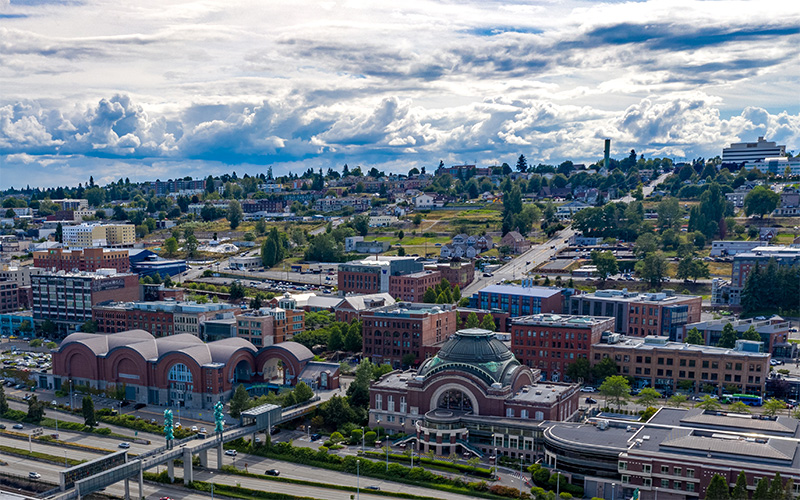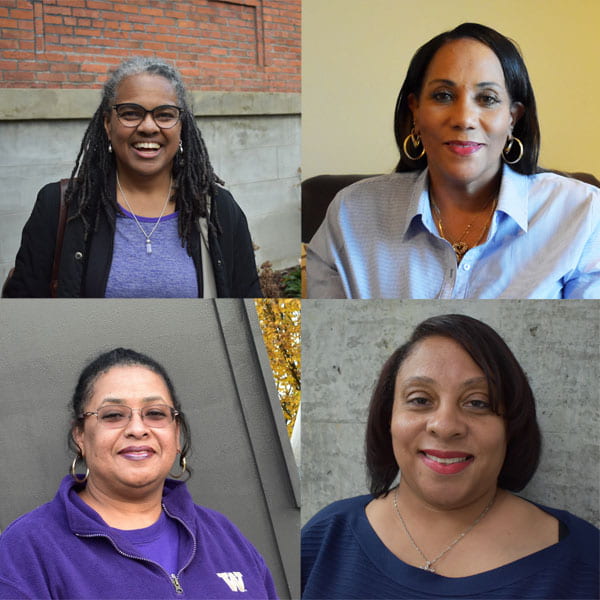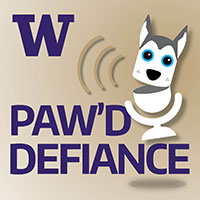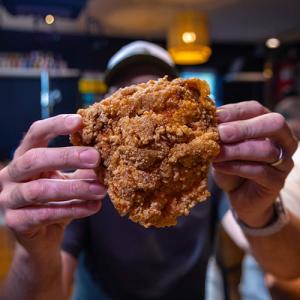
Founding Stories: The Black Student Union
Linda Ishem, Lisa Faircloth, Jamie McGee and Chana Lawson talk about the Black Student Union, the first student organization at UW Tacoma.
It’s hard to overstate the impact Black Student Unions (BSU) have had on higher education. Borne out of the Civil Rights movement of the 1950s and 1960s, the first organization to call itself a Black Student Union started at San Francisco State University (SFSU) in 1966. Not long after, BSUs began popping up at universities across the country, including at the University of Washington in 1968.

Student clubs geared toward Black college students existed before the development of Black Student Unions. However, BSUs were designed to be more than a safe space to meet people. Activism, including a push for diversity both in the classroom and in the curriculum, is at the core of many BSUs. Members of these organizations arranged sit-ins and strikes at campuses across the United States.
This effort produced tangible results. Not long after the strikes ended, SFSU established the College of Ethnic Studies. The University of Wisconsin created the Department of Afro-American Studies. Closer to home, UW developed the Special Education Program to recruit students of color. It’s worth noting that many of the programs and practices implemented by universities in the wake of student protests were already widely used by historically black colleges and universities.
The Black Student Union at UW Tacoma is almost as old as the campus. In fact, UW Tacoma’s BSU has the distinction of being the first student organization at UW Tacoma. Over the past 30 years, students in this organization have hosted events and meetings but they have also advocated for change including better representation when it comes to faculty of color.
The history of UW Tacoma’s BSU is also a history of the campus. Access and inclusion are at the heart of UW Tacoma’s mission as an urban-serving university, a mission informed by many different stakeholders, including the Black Student Union.
A few years ago, the UW Tacoma library set out on a mission to document the university’s early years. The result is the UW Tacoma Oral History: Founding Stories project. Staff at the library collected “first-hand accounts and perspectives of individuals who played significant roles in the shaping of the campus community and identity.”
Dozens of people contributed including Linda Ishem, Lisa Rankin Faircloth, Jamie McGee and Chana Lawson. Joan Hua took the interviews of these four and created an audio story that we have turned into an episode of Paw’d Defiance, the UW Tacoma podcast. In this episode, Ishem, Rankin Faircloth, McGee and Lawson talk about the history of UW Tacoma’s BSU.
Excerpts have been edited for length and clarity.
On BSU Activism
LINDA HURLEY ISHEM: I do know that, throughout the UW Tacoma history, that the Black students in the form of the BSU have advocated for more representation, you know, more faculty representation that looked like them and more staff member who looked like them, who had some sensitivities to some of what their experiences might be, and they could role model and mentor, role model for and mentor them in their own academic pursuits. The Black students on the campus have regularly submitted proposals or requests for more representation on our campus.
LISA RANKIN FAIRCLOTH: The students had a great concern that — and I’m going to be very blunt — that they had a white professor teaching African American Studies, who was Mike Honey. Wonderful guy, great guy. But he wasn’t Black. And they felt that there were African American women teaching — they had Deirdre Raynor; they had Carolyn West. There were a few Black women, but there were no Black, full-time faculty members. And they said, “There’s not even one. Why doesn’t the university have at least one person in the classroom that looks like us? We’ve got Black men here, Black young men who are in school. Why isn’t there somebody in the classroom that looks like us that we can identify with? There’s nobody here. Why?”
This kept being brought up, and they would, you know, it’s kind of just complained to me. Well, I’m not a decision maker. I’m not in hiring. I’ve sat on some hiring committees, quite a few of them as a matter of fact, but I’m not the final decision maker with that. We even went to the Black Collective. They were, you know, wanting to vent there. And they said, “Well, you guys need to do something about that, you know, let your voices be heard, you know. Do a protest, do something.” So, students at the time said, ‘You know, we need to do that.’ So, what they did, they did a little protest in the courtyard.
On Creating the MLK Unity Breakfast
JAMIE MCGEE: I was always constantly saying, ‘You know, we got to coalesce. We got to collaborate.’ Chana was bringing a whole bunch of ideas as well because she’s very creative and she’s also very ambitious and determined. So we would just shoot out some stuff and I go, ‘I remember saying something about, in the church they have a breakfast, something. I ... something about a breakfast.’ And she goes, ‘We could do that.’
CHANA LAWSON: We wanted to break down the walls because, even in the community and having discussions, a lot of people have perceptions about UW Tacoma that weren’t quite on point.
But it was also to breakdown silos even between the community and the campus. Like, make more people aware of what the campus was doing and the students on the campus. Some people said, ‘I didn’t even know, how many Black students do they have there?’ It was to break down silos between student orgs as well and bring everybody to the table and make sure that people knew what a vital resource that the university was and what it could be if we all came together. How can we come together to unify and get some things done, as well, such as serving in the community on a day like Martin Luther King Day?
About Paw’d Defiance

The title of our show is more than just a clever play on words. The name reflects a philosophy, one that is committed to telling interesting stories about the people, research, initiatives, community partnerships and other issues related to UW Tacoma and higher education. It also speaks to our interest in the greater Tacoma community. Point Defiance is inexorably linked to the Grit City. Also, “defiance” is a fun word and, either intentionally or not, speaks to Tacoma's history as the “other” city in the Puget Sound region.
Thank you to Doug Mackey at Moon Yard Recording Studio for his recording support and Senior Lecturer Nicole Blair for our theme music. The first season of this podcast was made possible by funding from the UW Tacoma Strategic Initiative Fund.
You can find Paw'd Defiance on iTunes, Stitcher, Google Podcasts, Pocket Casts and Spotify. You can also click here to listen: Paw'd Defiance



